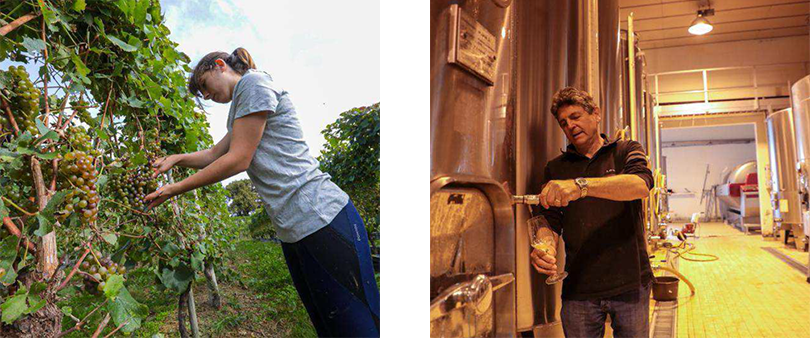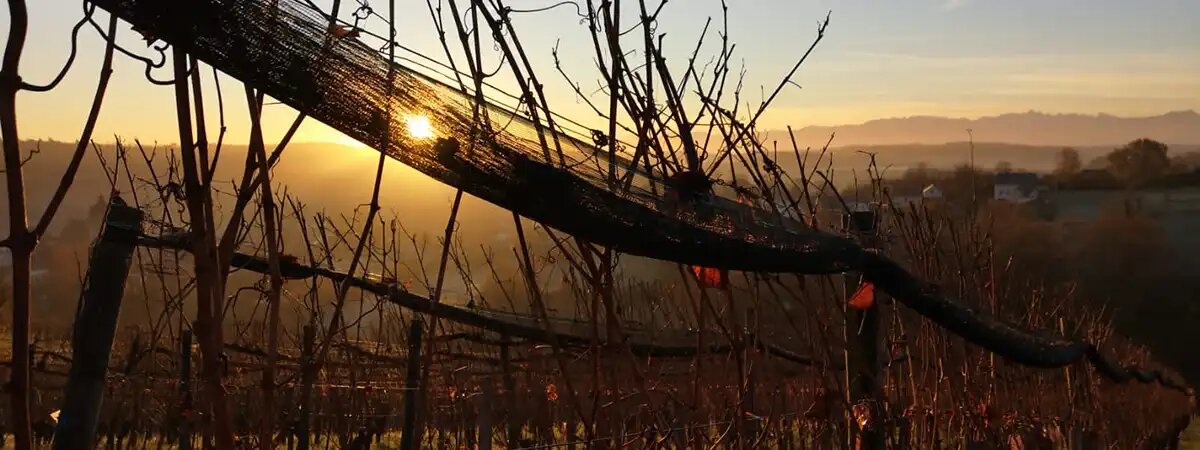Article published in the République des Pyrénées on October 1, 2021.
Author : Emma Chevallier – Photos by Ascension Torrent.
Grape harvest has begun in the area of Jurançon, in southwest France. At the Cauhapé estate in Monein, about thirty workers are taking turns. Our report in the heart of the harvest.

Smell of mushrooms
« I AM A PEASANT WITH A CAPITAL P,
BECAUSE I PUT A LITTLE NOBILITY IN IT».

